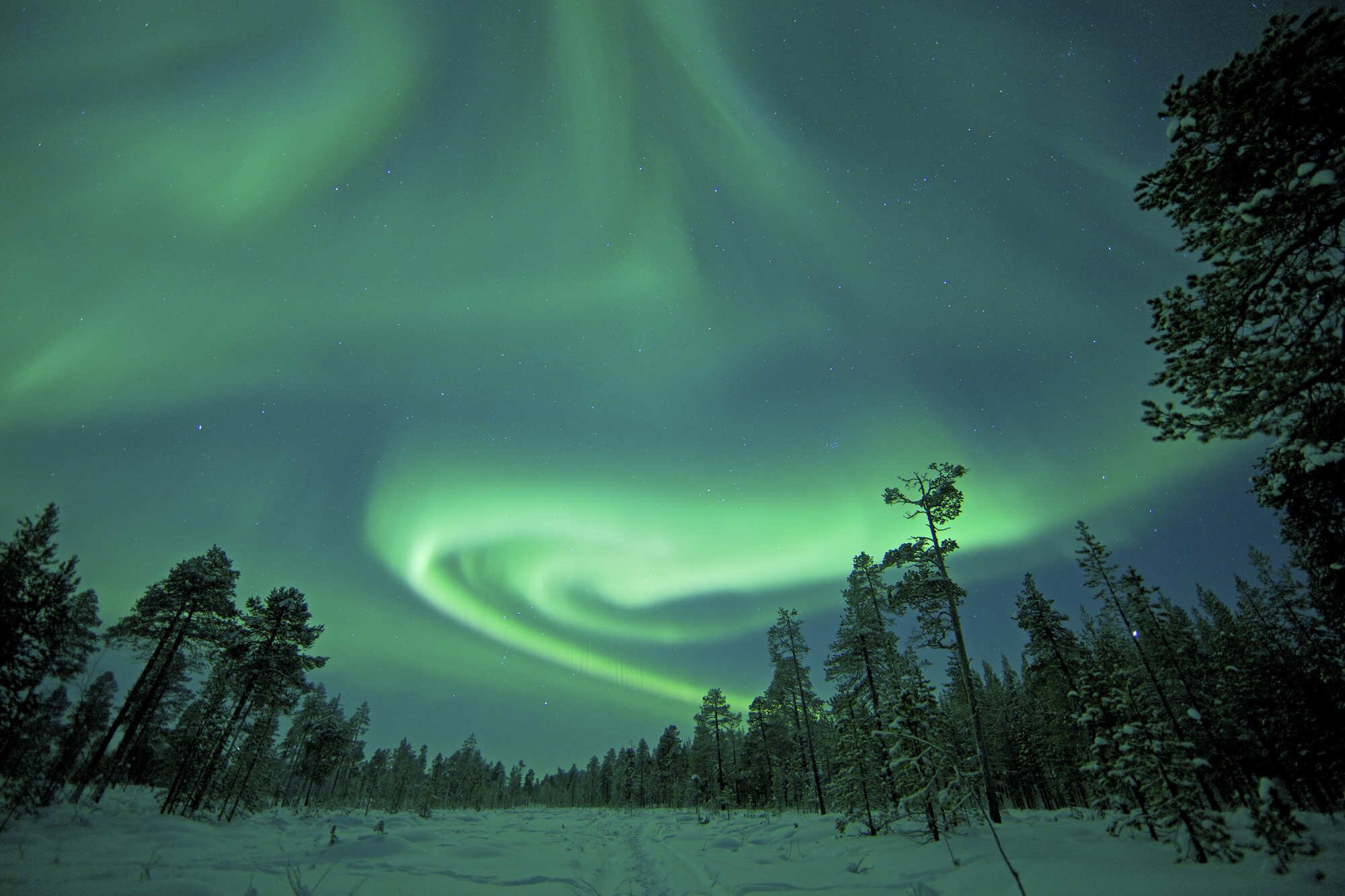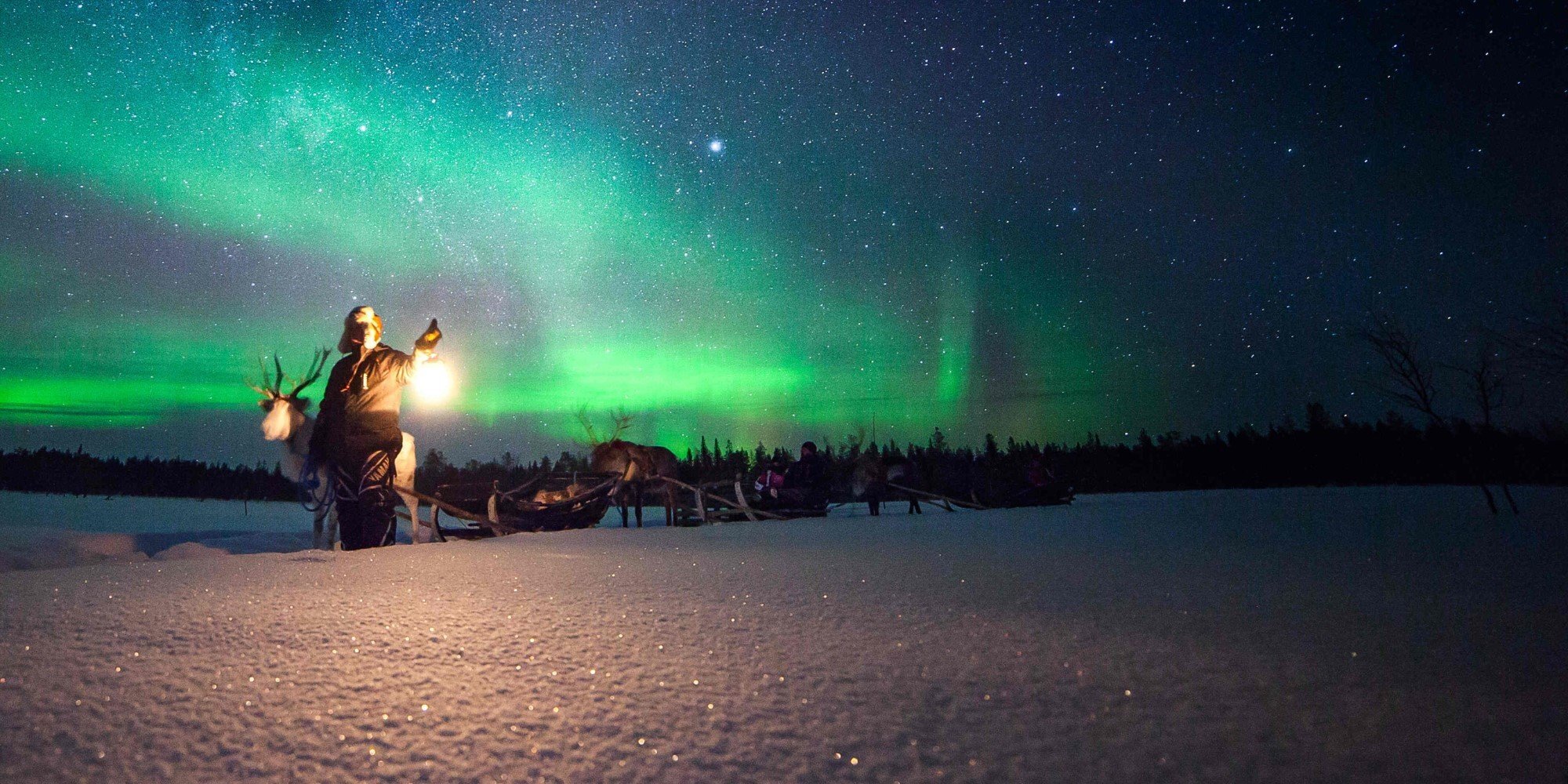The Northern Lights – aka the famous Aurora Borealis – are a magical sight. Otherworldly and eerie. Silent yet awe-inspiringly dramatic. A vast, multi-coloured, fiery curtain in the sky.
Our fantastic holidays in the far north of Europe include Northern Lights excursions, so there's no need for you to handle all the arranging and organising, which is a complicated job at the best of times thanks to the unpredictability of the lights and the weather patterns that make them easier to see. It's our job to figure out where they're most likely to appear, and your job simply to enjoy them.
Here's what you need to know about when to watch Northern Lights...
Times of year they're likely to occur
Appearances of the aurora can happen at any time but because they're impossible to see against the super-light late night summer skies far up north, our trips to view them take place when the night skies are properly dark.
_w=1240_h=500_pjpg.jpg?v=202509161525)
What month is the best time to see the Northern Lights?
It's easier to see the lights against a dark sky. And a clear sky is optimal since clouds hide the aurora. Both of these facts suggest September to April might be the best time to plan your trip, when the nights are darkest.
And there's more... the intensity of the Northern Lights depends on the sun's 'Solar Cycle', an eleven-year period that swings from maximum to minimum. A 'Solar Maximum' stage brings regular appearances of brightly coloured aurora, while a 'Solar Minimum' usually means the aurora occur less frequently.
January to March are the most popular months for aurora spotting, with their very long and very dark nights. Some say the Northern Lights are more likely to appear on colder nights, but there's no real proof. It's also possible that because most of the winter snow has already fallen, we're left with clearer skies that offer great aurora views. There has also been speculation that the spring and autumn equinoxes in late March and September bring more activity from the sun.
From April to August the skies stay too light until too late at night to see the show, which is happening invisibly overhead but can't be observed without special equipment.
September and October are perfect for aurora watchers who are not keen on experiencing the full-blown Arctic winter, which is extremely cold. You might even be lucky enough to experience a whopper of a Northern Lights display so vivid it reflects in the mirror-like, ice-free rivers and lakes.
November and December see the first deep snows arriving as the frozen north descends into winter. The cloud cover can obscure the lights but at the same time the shorter days and darker skies mean there's more chance of seeing them.
Our conclusion? The best time to see the northern lights is usually late November to early March.
_w=1240_h=500_pjpg.jpg?v=202509161525)
Do the Northern Lights happen every night?
The Northern Lights are notoriously difficult to predict anything more than a couple of hours in advance, although we do everything we can to pin them down for you. If you're in the right place at the right time, when the solar winds are strong and the sun has been active, you could even catch one of the really big shows, the kind of aurora that can be seen in the entire night sky by people across planet.
How long do the Northern Lights last?
Once they appear the Northern Lights can last for an entire night if you're lucky, or for just a 10-minute stretch if you're less fortunate. But just 10 minutes of the lights' extraordinary glow is enough to deliver enough awe to last a lifetime, a sight you'll never forget.
Let's talk Northern Lights
Now that you know the best time Aurora Borealis will be in the far north night skies, you can plan your holiday around a potential sighting. But even if the Northern Lights don't play ball, you'll have the most incredible time exploring Lapland's extraordinary landscape and a remarkable culture, as this is a winter holiday destination with a real difference.
Learn more about our Northern Lights holidays here
Originally published 14 June 2019, updated 17 June 2024
